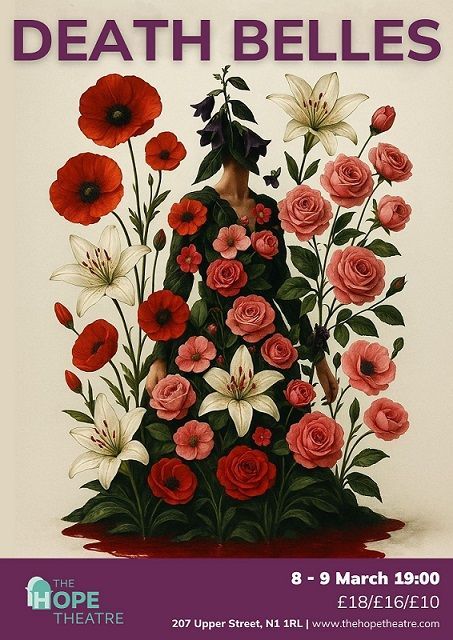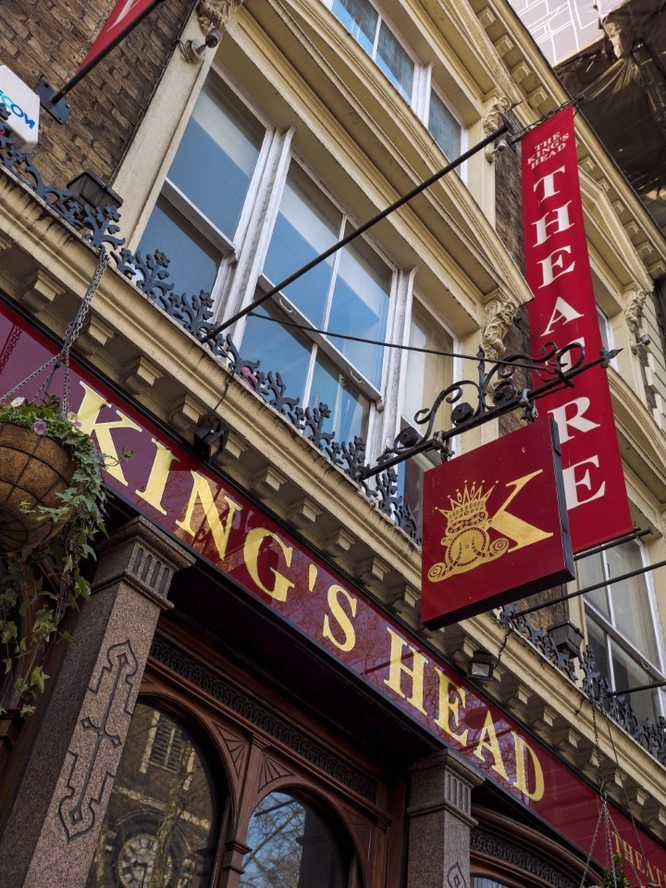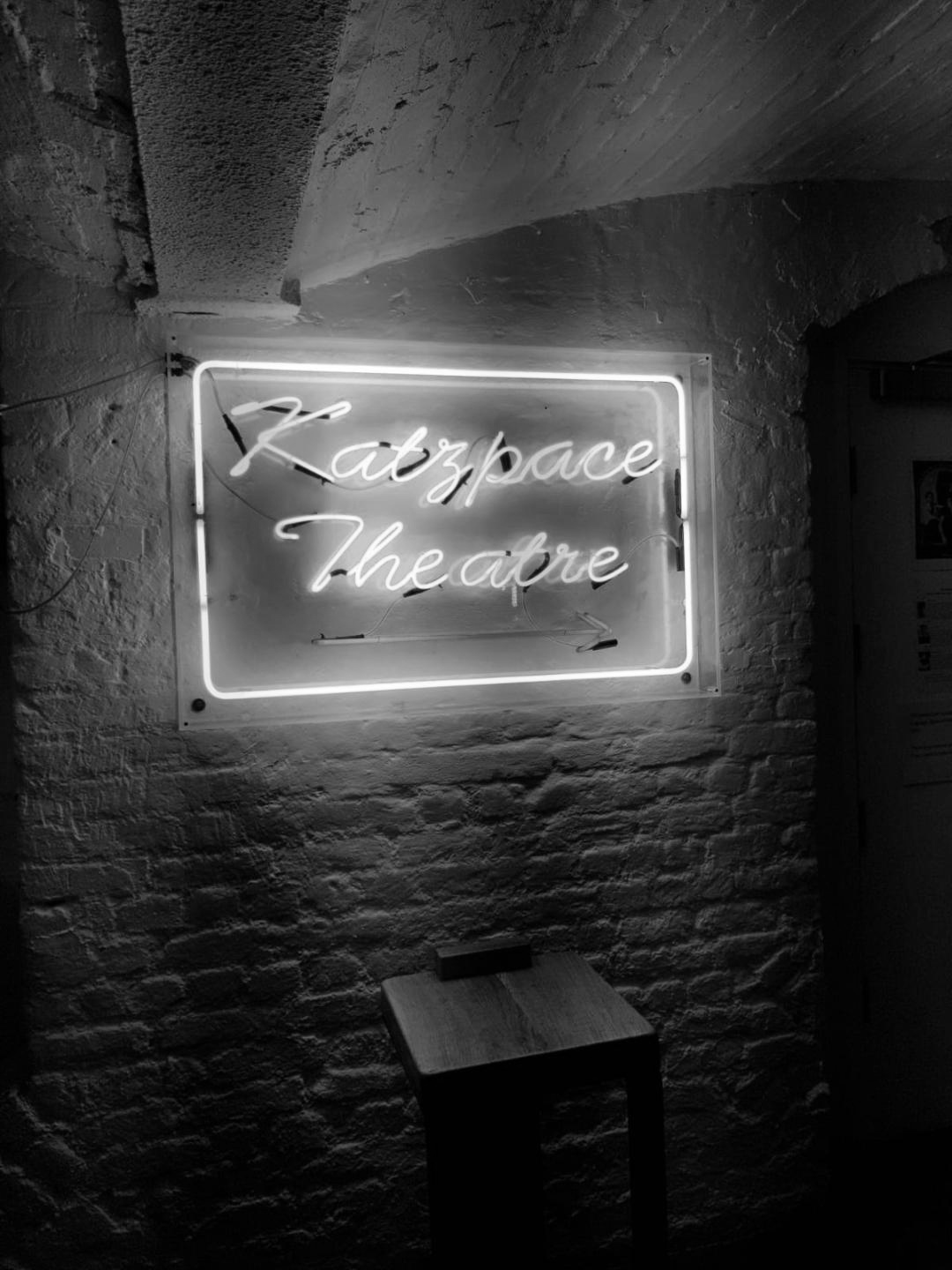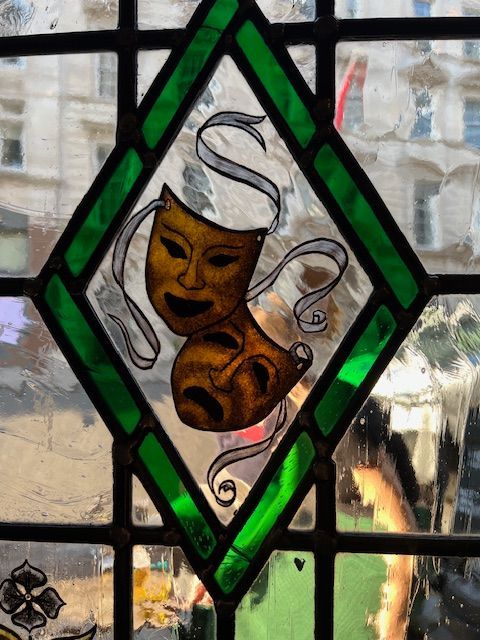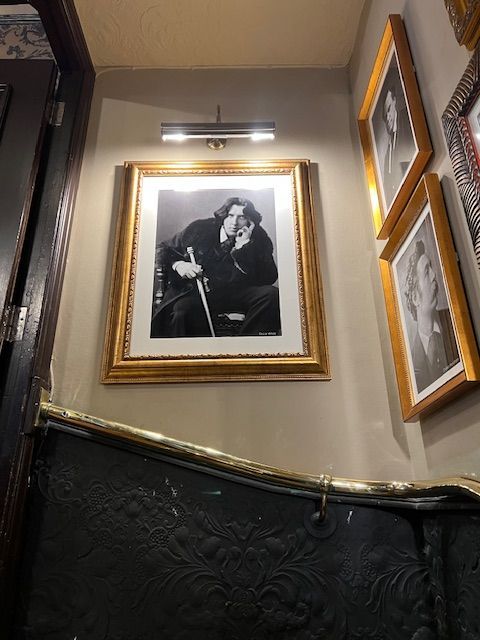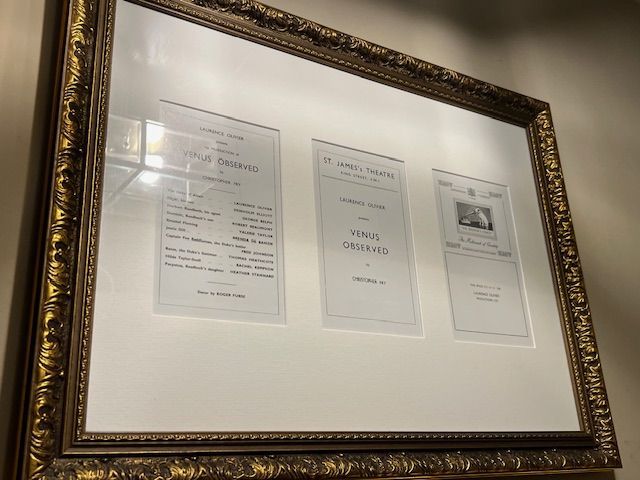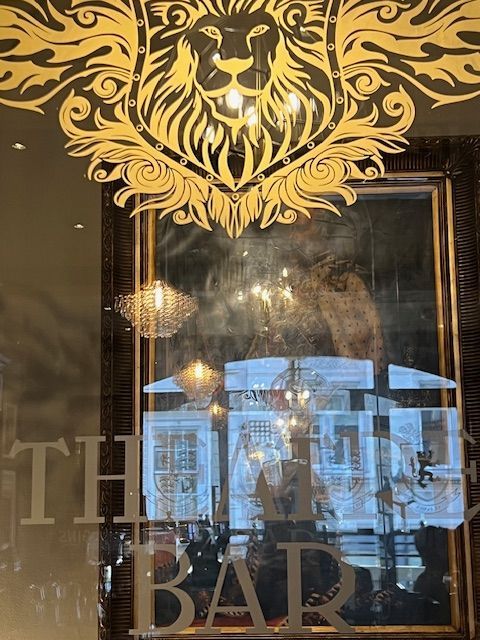One of the highlights of 2024 at London Pub Theatres was the news that Barons Court Theatre was saved. Threatened with extinction by Hammersmith & Fulham Council, unless all the seating was replaced at an eye-watering cost, the future for this progressive, energetic haven of new writing looked bleak. But a high-profile funding campaign and the generosity of many supporters led the council to match-fund what was raised. The target was met and Barons Court Theatre, saved, much to the joy and relief of theatre makers and audiences.
The Harrison in Bloomsbury, although not a pub theatre, is a hot spot for emerging comedy. It too suffered a similar existential dilemma in 2024 with another staggering bill from the council, but it too received an eventual reprieve. Both examples are a sobering reminder that pubs as venues exist in a precarious state. Artistic directors of pub theatres rarely have Arts Council Funding and walk a financial tightrope while juggling multiple responsibilities. Many struggle to balance the books while delivering varied, diverse and affordable theatre for off West End theatre audiences.
These unique performance spaces, often in the backs of, or upstairs from working pubs, historically might have been meeting rooms, ballrooms, snooker rooms or boxing rings (as was the case of the original King’s Head Theatre) but now comprise a vital eco-system in theatreland, as well as a welcoming environment for new writers, directors, and performers. “Pubs offer a place to perform, a Brookian, empty space. Perhaps they started in the Courtyard Inns where Tudor rogues and vagabonds (which is how actors were regarded if they didn’t have a patron) plied their trade” reflects Chris Lilly, Senior Reviewer at London Pub Theatres and a theatre goer for over fifty years.
“The saloon theatres that preceded the growth of purpose-built music halls in the end of the nineteenth century were public houses with theatres built in the back. Pub theatre today offers unrivalled excitement of the new and undiscovered, sometimes searingly good acting, three feet from your seat. It allows the next generation of theatre makers to learn their craft," continues Lilly. At London Pub Theatres, these establishments are a cause of daily celebration. But we wanted to take a moment to reflect on some of those that sadly did not survive. Here are some that made a real contribution to the pub theatre scene. They are gone but not forgotten.
The Man in the Moon in Chelsea was a stalwart of pub theatre delivering quality productions from the 1980s onwards until it was closed in 2003 to become a pizza restaurant. It was one of the early ones with a good reputation, a nose for the relevant and the ability to court controversy or generate headlines, such as their production of The Romans in Britain by Howard Brenton, that comments upon imperialism and the abuse of power, and a play about Mark Chapman, John Lennon’s assassin.
Founded and run by Leigh Shine, writer James Woolf, who had several productions here, recalls: “It was on two floors with an upstairs balcony and three sides. It fit in just over 100 people. It had a bunker-like feel because audiences had to go down into the theatre.” Actor, director, and PR, Matthew Parker recalls it as “a real bastion of cutting-edge British theatre. The first to revive the Romans in Britain by Howard Brenton in 2000, (prosecuted by Mary Whitehouse for gross indecency in the 1980s). I know this because I was in it as a 25-year-old! I'm a huge Brenton fan. He came to see it and so I met him. The theatre regularly got national press in to review. It really was a wonderful place”.
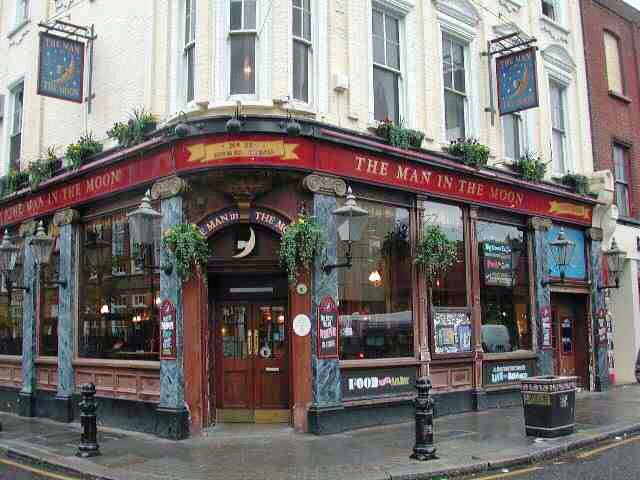
Image: The Man in the Moon
Photo credit: Monica Arellano-Ongpin
Above The Stag Theatre was founded by Peter Bull in 2008 and was situated above The Stag, a gay pub in Victoria until 2012. At the time of its existence, it was the only producing venue in the UK presenting a year round programme of LGBTQ+ theatre until the building was eventually demolished. The company moved into a renovated railway arch in Vauxhall, then onto the Albert Embankment until it was priced out. It ceased trading in 2022 although the production company continued.
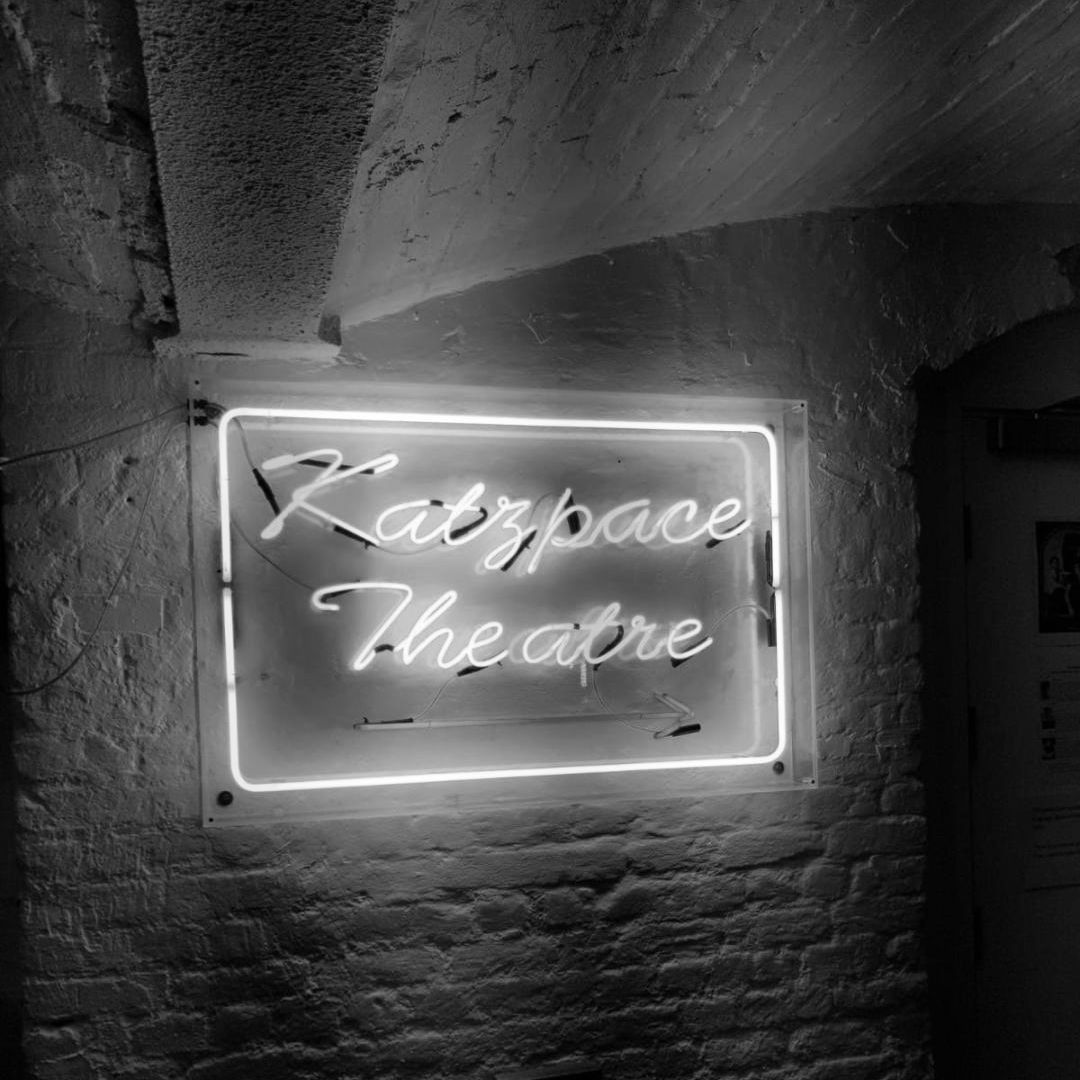
Katzpace founded in 2017 by Greg Birks and Bebe Barry in London Bridge, under Katzenjammers Bier Keller, was the only pub theatre to be lost during the pandemic. Katzpace had a youthful, energetic atmosphere, a concrete basement with a square playing space and big LED floodlights on the four corners. Although basic, it hosted good shows that spanned new writing to Shakespeare, a no-frills space for later in its life, new indie bands would strut their stuff. As the Katzpace shut up shop for the last time in Covid-ravaged 2020, there was a new arrival on the London Pub theatre scene, Camberwell’s Golden Goose Theatre in South London, founded by Michael Kingsbury of The White Bear down the road in Kennington, a cause for optimism after such gloomy news of another venue biting the dust.
Theatre N16 Described by founder, Jamie Eastlake as a “playground for creatives” began life as an 80 seat venue in Stoke Newington. After a few months, it had to move on when the pub changed management. Then onto the Bedford Pub in Balham for two and a half years before this home too was upended by plans to develop the site. Their third home at The Styx in Tottenham Hale, a sort of tent-cum-cocktail bar in the middle of the gyratory, survived for eight months before it was pulled down in favour of new development. Eastlake, no longer in London, continued with his commitment to new talent by opening a performance space and tapas restaurant in his hometown of Sunderland.
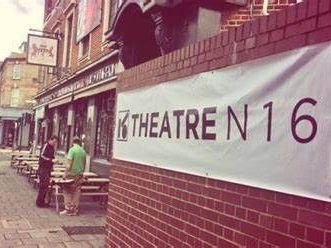
The Crown and Castle, once situated in Dalston Junction on the corner by the Arcola, had "an underused function room" above the Irish pub that was repurposed to offer cabaret, stand up, poetry, weirdness. It was where lots of comedy stars began their careers. Chris Lilly recalls changing in the loos with Mike Myers and being introduced by Nigel Planer, of the anarchic, 1980s BBC sitcom, The Young Ones, depping as an MC. “It wasn’t a theatre in any real sense, just a space to perform in. But as Peter Brook pointed out in The Empty Space, that’s enough.”
“Pub theatre offers accessibility and an environment in which risk-taking is possible. In which failure means trying again and failing better, in which a director can begin to learn their craft alongside sympathetic curation from Artistic Directors committed to development, and a place where artists starting out can have their voices heard” believes Lilly. Michael Kingsbury, an Artistic Director of over 30 years, feels “pub venues are key to the theatre industry, primary development grounds for emerging talent and more experienced practitioners that want to try out new areas of their work. They occupy a similar space regional reps occupied until the mid-eighties in terms of being the first experience of performance for drama school graduates and new theatre companies”.
While some pubs vanish - and a vast number have vanished - pub theatres sometimes rise phoenix-like in another place or space. In 1980, The Wakefield Tricycle Company was housed in the Pindar of Wakefield pub at King’s Cross, before heading north to Kilburn, setting up as The Tricycle Theatre, and transforming into the Kiln Theatre. The Bush Theatre was originally above the Bush Pub in Goldhawk Road before getting a smart new home in a former library. The famed Kings Head Theatre which opened in 1970 was for much of its life in the King’s Head pub on Upper Street, Islington. It moved to a purpose built, contemporary premises next door in Islington Square in 2023, retaining its original name to honour its roots and original connection.
If you have memories of any loved and lost London Pub Theatres, do share them with us. We'd love to hear from you. Email, the Editor, Heather Jeffery hjwrites@aol.com
ADDENDUM
The Rabbit Hole Theatre, Hampstead. The theatre opened in the basement of The Duke of Hamilton Pub in Hampstead 2012. The pub theatre closed 2017 after flooding in the basement. The pub reopened in 2018, with a jazz club in the basement. The Duke of Hamilton has been a core part of Hampstead life since 1721 and was once famed as the favourite watering hole of actors Richard Burton, Peter O’Toole and Oliver Reed. The pub has a rich history and heritage but has remained a pillar of the community for centuries, feeding and watering locals.
The Golden Lion in St James, is a theatre pub that has lost its theatre. This pub used to be connected from its upstairs bar to the theatre next door: StJames's Theatre. The pub dates back to the 18th century and the three story theatre was built in 1835 and demolished in 1957. It staged works by Shakespeare, Ben Jonson and Oscar Wilde plus a Charles Dickens farce amongst other work.
Images below: The golden Lion pub memorabilia
Greenwich Theatre started life as a pub theatre in the 1800s. It’s had live performances since 1855 and used to be a music hall at the back of The Rose and Crown pub. They used to ring an interval bell in the pub. It was really part of the life of the theatre, and it still is in a lot of ways. Over time the theatre evolved, it was a cinema for a short period of time, then lost its license briefly for lewd performance, it closed after WW2 and fell into disrepair, the roof got sodden and fell in. It was due to be demolished but in the 60s a local actor led a campaign to save it. The whole building was remodelled, and the theatre now has a 400 seat main space and 60 seat studio theatre. Round the side of the brick building, on Nevada Street, it is possible to see the original Victorian plaster work.
